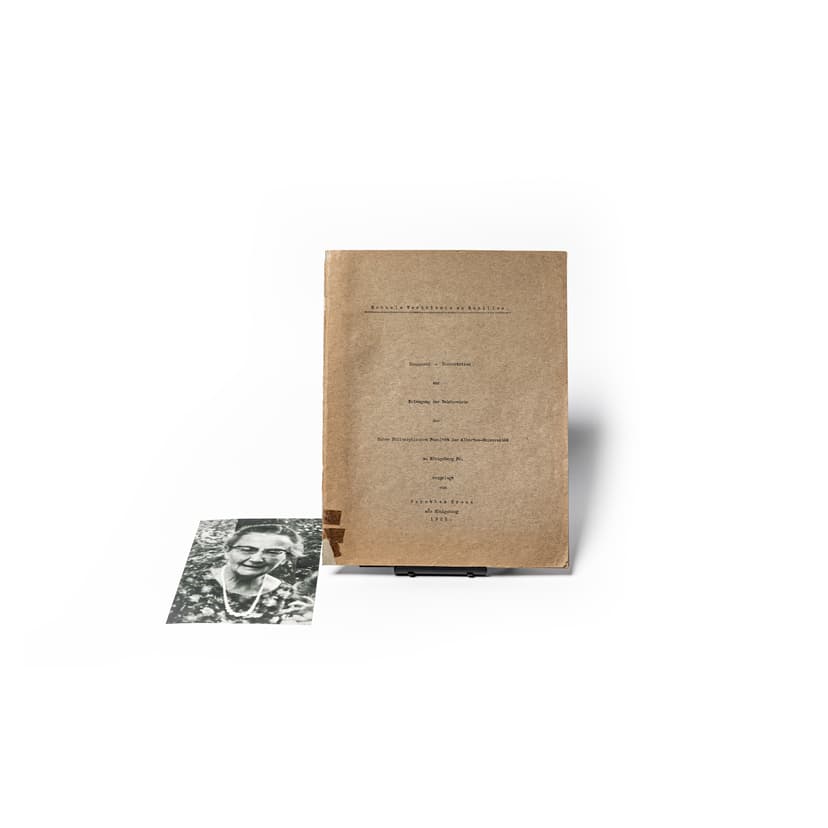I only knew my great-aunt Dorothea as a child. She was a distinguished and noble old lady. She had a walking stick, which I admired and which I loved to ride with. And she always had a pillbox full of colorful tablets with her, from which she took several before every meal. I would have loved to take some too, but of course I wasn't allowed to. I remember that she loved to read to me and my two sisters. Although I only knew her briefly, I still feel close to my great-aunt Dorothea today. And I'm proud of her because she achieved a great deal. She wrote a doctoral thesis on a challenging German studies topic, even though she was a woman, and that was anything but common in the 1920s. It was never made a big deal in our family, but today I realize what an achievement it was. For my mother, she was a special person because my grandmother had many children and couldn't care for each one as intensively. That's when Dorothea stepped in. When she died, my mother cried. I rarely saw her cry, so I remember the moment well.



